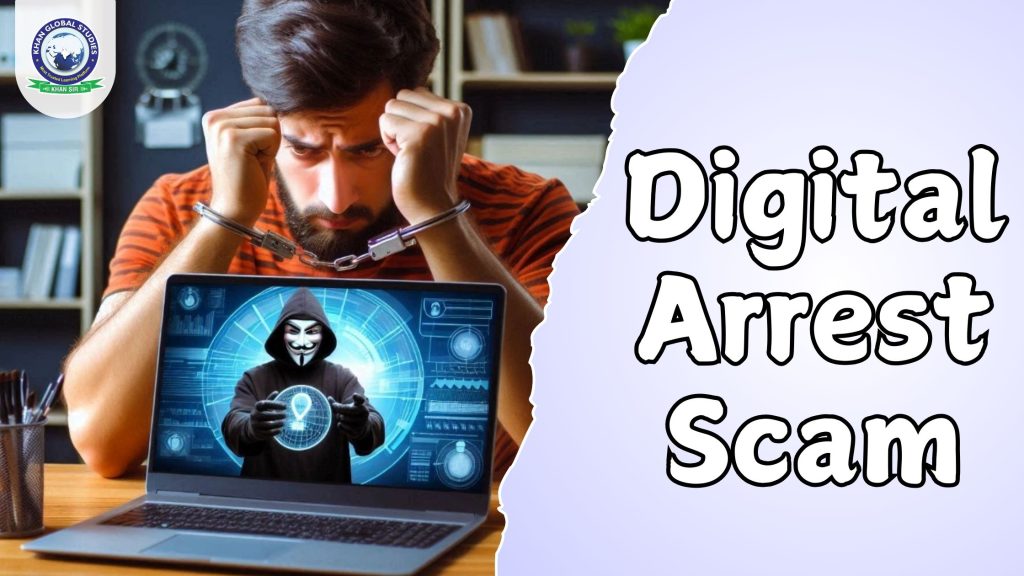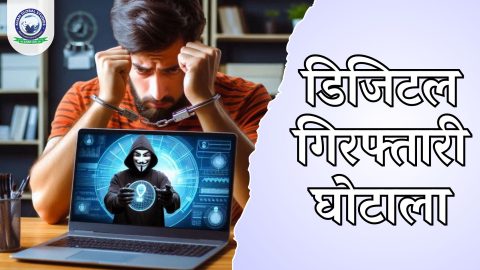Recently a new fraud scam has come to light which is being called the “Digital Arrest Scam”. In this scam, thugs are robbing crores of rupees from people and businessmen by posing as fake government officials. Due to this fraud, Prime Minister Narendra Modi has advised people to be vigilant and report any such case to the cyber helpline. The Indian Computer Emergency Response Team (CERT-In) has also given guidance on ways to identify and avoid such scams.
What is a Digital Arrest Scam?
A digital arrest scam is an online fraud in which criminals try to trap a person in false cases and extort money in his name. In this scam, thugs scare their victims by accusing them of illegal activities and then asking for money from them. In such cases, people are at risk of financial loss as well as their identity being stolen.
How does a Digital Arrest Scam work?
In this scam, fraudsters follow the following procedure by posing as CBI, Income Tax officials or Customs agents:
- First contact: Fraudsters call a person and introduce themselves as government officials. The name and rank of the fake officer is mentioned in this call to dupe the victim.
- Switching to a video call: Fraudsters ask the victim to make a video call on platforms like WhatsApp or Skype. During this call, they show fake uniforms and a police station-like setup to make the victim believe that the call is real.
- Use of fake arrest warrant: Fraudsters refer to a digital arrest warrant to the victim and accuse them of tax evasion or other legal matters.
- Demand for money: Fraudsters pressure the victim to transfer money to a specific bank account or UPI ID in the name of “clearing the name” or “refundable security deposit”. In most cases, they present it as an emergency so that the victim sends the money immediately.
- Disappearance: After the money is transferred, the fraudsters disappear and the victim suffers financial loss.
How can you protect yourself from a digital arrest scam?
The most important way to avoid a Digital Arrest scam is to be cautious. Here are some measures that can protect you from this scam:
- Recognize suspicious behaviour: Be wary of calls claiming to be from government officials and asking for money. Real government officials never ask for money directly over the phone.
- Do not succumb to pressure: Scammers often create situations that scare the victim. If you are being intimidated in a call, do not panic and first understand the situation.
- Confirm the caller’s identity: If a call is suspicious, confirm their identity by contacting the concerned agency. This step can protect you from fraud.
- Do not share sensitive information: Do not share your personal or financial information with anyone over a phone or video call, especially to unknown numbers. Government agencies never ask for such information.
- Report suspicious activity immediately: If you think you are being a victim of a scam, immediately inform the local police or cyber crime authorities.
What do you do if you fall prey to the Digital Arrest scam?
If you have fallen prey to this scam, take the following steps immediately:
- Inform your bank and freeze the account: First of all, inform your bank to avoid any further fraud.
- File a cybercrime complaint: Visit the National Cybercrime Reporting Portal (cybercrime.gov.in) file your complaint and submit as much evidence as possible.
- Preserve all documents and evidence: Preserve evidence such as call details, transaction details, and messages. This can be helpful in future investigations of your case.
- Seek help from a lawyer if needed: If you are suffering huge financial losses, seeking legal assistance can be helpful.
Understanding CERT-In’s advice on Cyber Threats
India’s Computer Emergency Response Team (CERT-In) has emphasized on staying informed and alert about cyber threats. Cyber fraud is constantly evolving, so it has become important for individuals and businesses to stay aware of new scam strategies.
CERT-In has advised to follow some key principles to prevent cybercrime:
- Educate yourself and others: Keep yourself updated about cyber threats and prevention methods regularly. Sharing this information with family and colleagues collectively strengthens the protection against cyber scams.
- Be cautious online: Avoid clicking on suspicious links and sharing sensitive information online, no matter how credible the source may seem. Double-check URLs and be suspicious of messages asking for personal information.
- Use security tools: Protect yourself from attacks using available cybersecurity resources like antivirus software, firewalls, and secure payment gateways.
By taking steps like being alert and taking precautions, you can greatly reduce your chances of becoming a victim of scams like the Digital Arrest scam.
Frequently Asked Questions
Q: What is a digital arrest scam?
Answer: A digital arrest scam is an online fraud in which criminals pretend to be government officials to extort money from people. They scare people by implicating them in false cases and demanding money from them.
Q: What to do to avoid a digital arrest scam?
Answer: To avoid this, be careful, verify the identity of the caller and never share your personal information with unknown callers. Report suspicious calls immediately.
Q: What should I do if I fall prey to a scam?
Answer: If you fall prey to a scam, first inform your bank, file a complaint on the cybercrime portal and keep the evidence.
Q: Do government agencies contact you on WhatsApp or Skype?
Answer: No, government agencies never contact on social media platforms like WhatsApp or Skype. If you receive such a call, it is probably a scam.
Conclusion
The digital arrest scam is a growing threat in which fraudsters scare people into swindling their money. The most effective steps to avoid such cases are to be vigilant, verify the identity of callers, and report to the relevant agencies as soon as possible.




